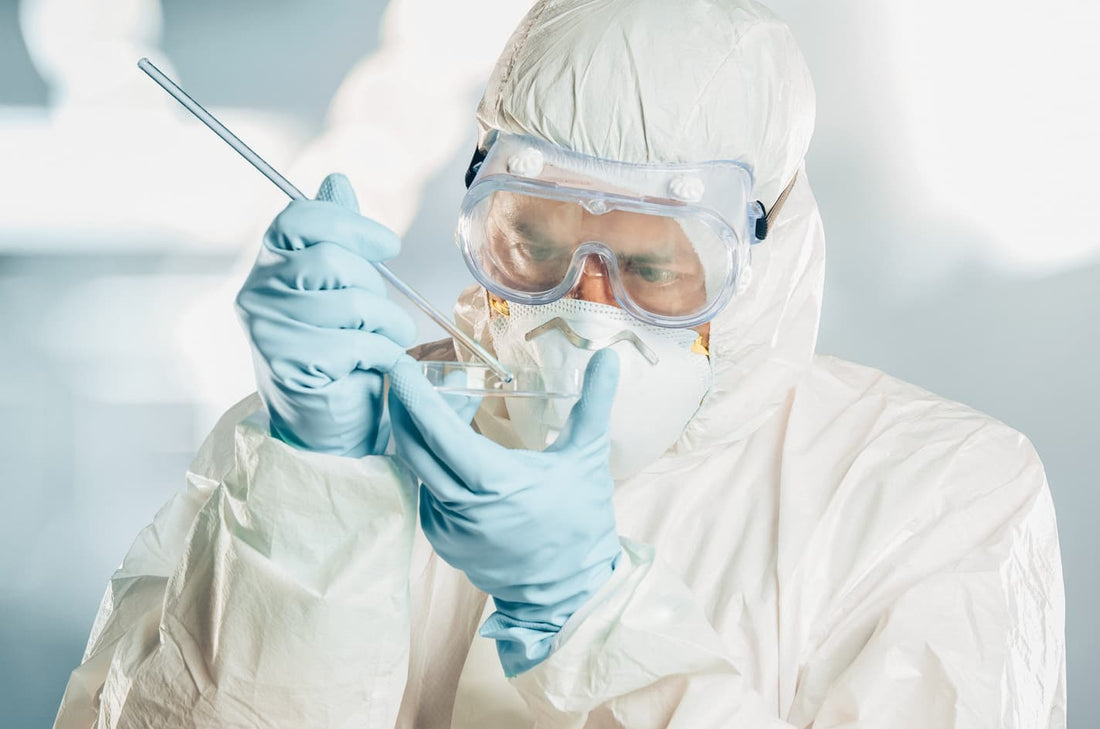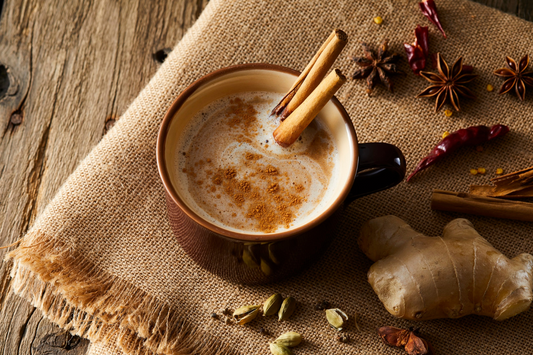Quick Summary
Most traditional soaps contain harsh and toxic ingredients like parabens, synthetic fragrances, SLS, triclosan, and 1,4-dioxane — all of which are linked to hormone disruption, organ toxicity, and long-term health issues. Many of these chemicals are absorbed through your skin daily. This guide reveals the five most harmful ingredients in common soaps and explains why goat milk soap from Bend Soap Company is a safer, nourishing, all-natural alternative for the whole family — even newborns.
Like brushing your teeth and washing your hair, bathing has become such a routine part of our lives that we don’t often pay attention to what’s actually in the soaps and body wash products that we use. But we should.
Traditional soaps are often full of toxic, dangerous chemicals that penetrate the skin and cause serious health conditions, even as they wash away dirt. But with so many options out there, how can you choose the best soap for you and your family?
Knowing what ingredients to avoid is the first step in choosing the right soap, and we’re here to help with that. Take a look at the five most harmful ingredients in traditional soap, plus our pick for soaps to help you get clean with clean ingredients.
Parabens
Parabens are chemicals that are used to preserve cosmetics and personal care products, the same way chemical preservatives are used to keep foods from spoiling while they sit on store shelves. Because widespread paraben use is still a relatively modern occurrence, we don’t have definitive scientific research on how it impacts the body. There is, however, a 2004 study that found traces of intact parabens in the breast tissue of women.
While the study didn’t link the existence of the parabens to an increased incidence of breast cancer, it does reveal the chemicals’ ability to penetrate the skin and remain in the body unaltered by metabolism. Additionally, according to the Environmental Working Group, parabens can “act like the hormone estrogen in the body and disrupt the normal function of hormone systems.”
Fragrance
One of the best ways to avoid products with unsafe ingredients is to check ingredient labels for known toxins. Sometimes, however, that approach doesn’t work. Because the FDA doesn’t require cosmetic manufacturers to list the specific ingredients that are used to create their product’s scent, the word “fragrance” is often a convenient hiding place for some pretty toxic chemicals.
Researchers found that the fragrances of up to 100% of cosmetic products contained known allergens. Phthalates are a group of chemicals that are used as a solvent and fixative in fragrances, and they have been shown to cause damage to the liver, kidneys, lungs, and reproductive system, including the still-developing testes of male babies in utero.
1, 4-Dioxane
Like the compounds that make up your favorite soap’s scent, you probably also won’t find 1, 4-Dioxane on any ingredient labels. 1, 4-Dioxane is found in soaps and other sudsy products, and it is created when common ingredients are mixed together. 1, 4-Dioxane is a byproduct of this process — not a standalone ingredient — which explains why the FDA doesn’t require that it be listed on labels.
The Environmental Working Group (EWG) notes that while 1, 4-Dioxane can easily be removed from products prior to packaging, it remains in up to 46% of personal care products on the market. This is a critical issue, as the EWG considers 1, 4-Dioxane highly hazardous. Even short term exposure to the chemical can cause irritation of the eyes, nose, and throat, as well as kidney and liver disease. Long term exposure can cause cancer, and 1, 4-Dioxane is also known to pass through a mother’s breast milk.
Sodium Lauryl Sulfate (SLS)
Whether they’re washing their hands or their body, many people equate the efficacy of soap to the amount of lather it generates. Unfortunately, all of those suds come at a cost. Sodium Lauryl Sulfate, also known as SLS, is the ingredient added to soap to make it lather, and according to the EWG’s Cosmetics Database, it’s highly toxic. SLS carries a high concern for irritation of the skin, eyes, and lungs, as well as moderate concern for organ system toxicity.
Triclosan
In September 2016, the FDA banned triclosan, an antibacterial and antifungal ingredient used as a preservative in personal care products. The chemical has been found to negatively impact the immune system and cardiovascular function, while also potentially triggering an increase in allergy and asthma symptoms, antibiotic and antimicrobial resistance, and lower testosterone levels (to only name a few side effects).
Unfortunately, the FDA ban didn’t eliminate these risks. The ingredients found in antibacterial soaps place the products in the same category as over-the-counter drugs, so antibacterial soaps are regulated by the FDA. Traditional soaps, however, are not.
Even after the antibacterial soap ban on triclosan, it is still found in 2,000 or more products. And because of its frequent use in personal care products, research estimates that up to 75% of Americans are currently exposed to this dangerous chemical.
The Best Safe, All-Natural Soap
At Bend Soap Company, we craft all-natural, hypoallergenic soaps that are free of toxic ingredients but also completely effective in delivering a deep, moisturizing clean.
Our original Unscented Goat Milk Soap is made with just four ingredients: fresh goat milk, coconut oil, olive oil, and sustainably sourced red palm oil. These ingredients nourish the skin with vitamins and minerals leaving it soft and supple with no danger of irritation or worse. It’s even safe for newborns!
We also have more than a dozen scented varieties that are free of dangerous, mysterious “fragrances.” Instead, they’re made with high-quality essential oils like geranium rose, tea tree, and lavender.
Back to You
Lathering up in the bath or shower shouldn’t put you at risk for harmful health conditions like skin rashes or eye irritation. Ditch the traditional soaps that are filled with “dirty” ingredients like parabens, SLS, and triclosan, and opt, instead, for a more natural option. Goat milk soap provides a deep clean that will also leave your skin soft, supple, and nourished.
Continue Reading
- Blog Post: How to Live a Healthy, Toxin-Free Life
- Blog Post: The Hidden Dangers of Bath Bombs You Need to Know
- Blog Post Using Goat Milk Soap as Face Wash
- Blog Post: Your Exfoliating Face Wash is Doing More Harm Than Good
- Blog Post: Must-Have Skincare Products for Newborns
FAQs About Soap Ingredients and Goat Milk Soap
Why are parabens harmful in soap?
Parabens can mimic estrogen and disrupt hormone function. They’ve been found in breast tissue, raising concerns about long-term health risks and their ability to accumulate in the body.
What’s wrong with “fragrance” on labels?
The word “fragrance” can legally hide thousands of undisclosed chemicals, many of which are allergens or endocrine disruptors like phthalates that are linked to reproductive harm.
What is 1,4-dioxane and why is it dangerous?
1,4-dioxane is a byproduct of ingredient processing in soaps. It’s not listed on labels, yet it's considered highly hazardous and can cause organ damage and cancer with long-term exposure.
Is Sodium Lauryl Sulfate (SLS) safe?
SLS is used to create foam but is a known irritant to skin, eyes, and lungs. It’s linked to organ toxicity and can strip away natural oils, leaving your skin dry and vulnerable.
What makes Bend Soap's goat milk soap a safer alternative?
Our soap is made from only four clean, nourishing ingredients — fresh goat milk, olive oil, coconut oil, and red palm oil — with no synthetic chemicals or artificial fragrances. It’s safe for sensitive skin and babies alike.





104 comments
I have an autoimmune disease and am trying to eliminate more environmental toxins. Thank you for this info!
The tea tree soap has been life changing!
Can’t wait to try this soap out for my son!
I have been using non toxic house cleaners for awhile now. I am a Norwex consultant and have been able to illuminate toxic cleaners for over a year now. I am now moving to my bath and body products. I love love this company! I order your unscented soap regularly! 💛
Great information. Thank you for sharing it!